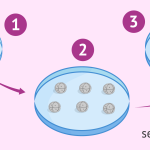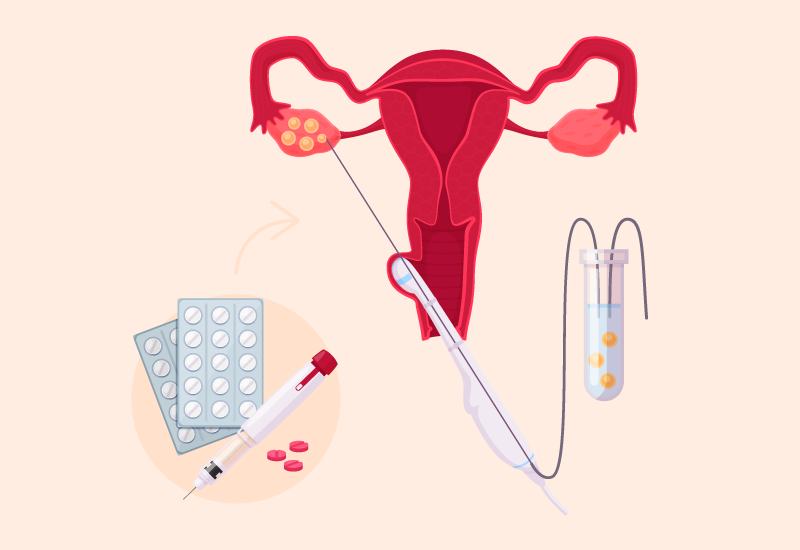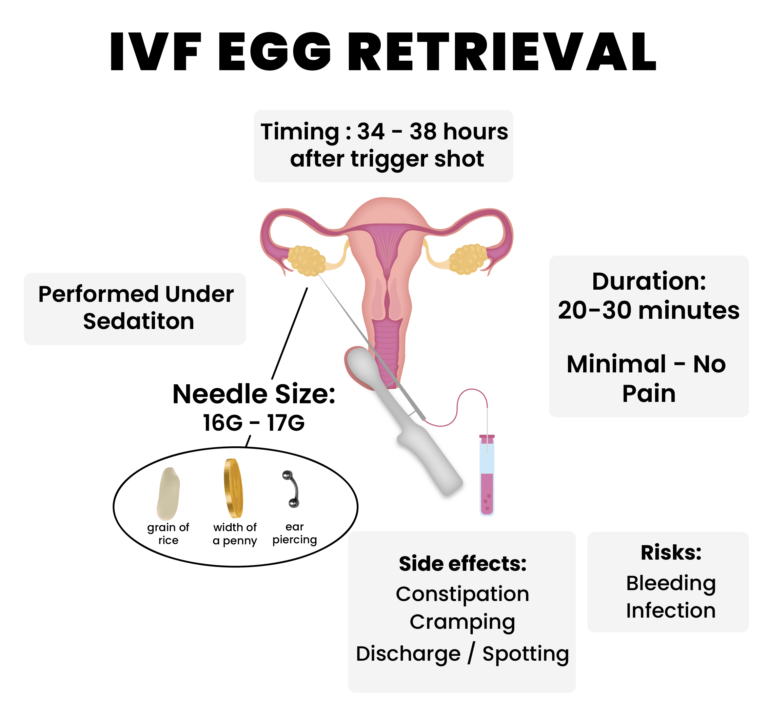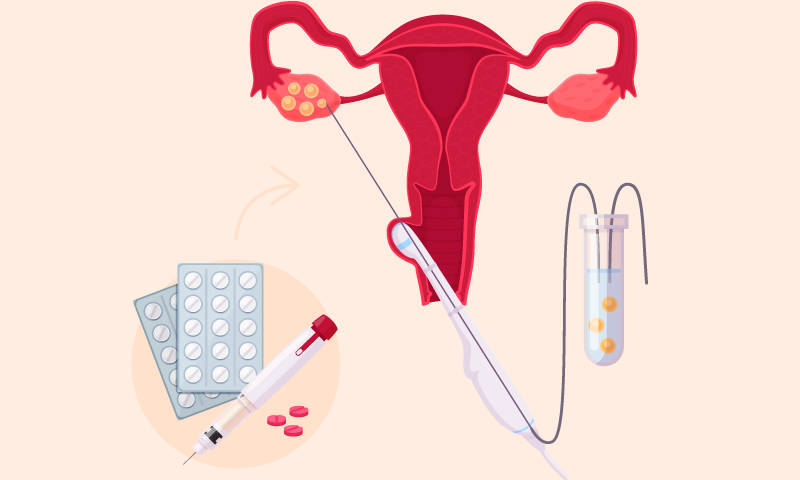
IVF Gender Selection Price: What You Need to Know Before You Decide
April 29, 2025The IVF Egg Extraction Process: Everything You Need to Know and More
Welcome to your ultimate guide on the IVF egg extraction process! If you’re curious about how it works, what it feels like, or even the little-known details that don’t always make it into the spotlight, you’re in the right place. In vitro fertilization (IVF) can feel like a big mystery, but we’re here to break it down into bite-sized pieces—think of it like unwrapping a gift, layer by layer. Whether you’re thinking about starting IVF, supporting someone who is, or just fascinated by the science, this article will give you the full scoop, plus some surprises along the way.
Egg extraction is one of the most exciting (and sometimes nerve-wracking) parts of IVF. It’s the moment when doctors collect eggs from your ovaries to kickstart the journey toward creating an embryo. But there’s so much more to it than just a quick doctor’s visit! We’ll dive into the nitty-gritty details, share practical tips, uncover hidden facts, and even sprinkle in the latest research to keep you in the loop. Ready? Let’s get started!

What Is IVF Egg Extraction, Anyway?
IVF egg extraction, often called “egg retrieval,” is a key step in the IVF process. It’s when doctors use a tiny needle to gently remove mature eggs from your ovaries so they can be fertilized in a lab. Picture it like harvesting ripe fruit from a tree—except this tree is inside you, and the fruit could one day become a baby!
How It Fits Into the IVF Journey
Before egg extraction happens, you’ll go through a few other steps:
- Ovarian Stimulation: You take special medicines to help your ovaries produce more eggs than usual (more on that later).
- Monitoring: Doctors keep an eye on your eggs with ultrasounds and blood tests to see when they’re ready.
- The Trigger Shot: A final injection tells your body it’s time to release those eggs.
Then comes the big day: egg retrieval! After that, the eggs meet sperm in the lab, and if all goes well, embryos form and are transferred back into the uterus later.
Why It’s a Big Deal
Egg extraction isn’t just a medical procedure—it’s a moment filled with hope and maybe a little anxiety. It’s the point where science and dreams collide. Fun fact: did you know the average woman releases just one egg a month naturally, but during IVF, doctors aim for 10-15? That’s like turning your ovaries into an egg-making powerhouse!
The Step-by-Step Breakdown of Egg Extraction
Let’s walk through what happens during egg retrieval, step by step. No fluff—just the real stuff you’ll want to know.
Step 1: Getting Ready (Prep Time)
Before the procedure, you’ll head to a clinic or hospital. You’ll be asked to skip food and drinks for about 8 hours beforehand (like fasting before a big test). Why? Because you’ll be under sedation, and an empty stomach keeps things safe.
- What to Wear: Loose, comfy clothes are your best friend. Think sweatpants and a cozy hoodie—nothing tight around your belly.
- Who’s There: A team of pros will be with you—an anesthesiologist, a fertility doctor, and nurses. It’s like your own personal pit crew!
Step 2: Sedation (Lights Out, Sort Of)
You won’t be fully asleep, but you’ll get a mild sedative through an IV to keep you relaxed and pain-free. Some clinics use general anesthesia, but most stick to “twilight sleep”—you’re awake but super chill, like lounging on a cloud.
- Fun Fact: About 95% of women say they don’t remember much of the procedure because of the sedation. It’s like a mini-vacation from reality!
Step 3: The Retrieval (The Main Event)
Here’s where the magic happens:
- The doctor uses an ultrasound wand (yep, the same kind used for baby pics) to see inside your ovaries.
- A thin needle attached to the wand goes through your vaginal wall to reach the follicles (tiny sacs holding the eggs).
- The needle gently sucks out the eggs and fluid from each follicle, one by one.
- The whole thing takes about 20-30 minutes—quicker than a sitcom episode!
- How Many Eggs?: On average, doctors retrieve 8-15 eggs, but it depends on your body and how well the meds worked.
Step 4: Recovery (Waking Up)
Afterward, you’ll rest in a recovery room for an hour or two. You might feel groggy, bloated, or a little crampy—like a mild period. Nurses will check on you, and you’ll need someone to drive you home (no solo adventures post-sedation!).
- Pro Tip: Bring a heating pad or a hot water bottle for your belly—it’s a game-changer for cramps.
What Does It Feel Like? The Insider Scoop
Okay, let’s get real—what’s it actually like to have your eggs retrieved? Most articles skim over this, but we’re spilling the tea.
During the Procedure
Thanks to sedation, you probably won’t feel much. Some women describe a vague pressure, like someone lightly pressing on their belly. Others say it’s a total blank—sedation wipes the memory clean. One woman on an IVF forum shared, “I woke up and asked, ‘Is it over already?’ It was like I blinked and missed it!”
After the Procedure
Here’s where it gets interesting:
- Bloating: Your ovaries just worked overtime, so you might feel puffy, like you ate a big Thanksgiving meal.
- Cramps: Think mild period cramps—annoying but manageable with a pain reliever like ibuprofen.
- Spotting: A little light bleeding is normal since the needle poked through tissue.
- Rare but Real: About 1 in 1,000 women experience something called ovarian hyperstimulation syndrome (OHSS), where ovaries overreact to the meds. Symptoms include severe bloating or trouble breathing—call your doctor ASAP if this happens.
The Emotional Rollercoaster
Physically, it’s doable, but emotionally? That’s a whole other story. You might feel excited (eggs = potential babies!), nervous (what if they don’t get enough?), or even a little sad (it’s a reminder of the struggle). One mom-to-be said, “I cried when they told me they got 12 eggs—not because it hurt, but because I felt so hopeful.”

Getting Your Body Ready: The Lead-Up to Egg Retrieval
Egg extraction doesn’t just happen out of the blue. Your body needs some prep work, and it’s a mix of science and patience.
Ovarian Stimulation: Supercharging Your Ovaries
For about 10-14 days before retrieval, you’ll take hormone shots (usually in your belly or thigh) to boost egg production. These meds—like FSH or Clomid—trick your ovaries into making multiple eggs instead of the usual one.
- How It Feels: Some women feel fine; others get moody or bloated. One patient compared it to “PMS on steroids.”
- Needle Nerves: The shots sting a bit, but they’re quick. Try icing the spot first—it helps!
The Trigger Shot: Timing Is Everything
When your eggs are almost ready, you’ll get a “trigger shot” (usually hCG or Lupron) to ripen them up. Timing is crucial—retrieval happens 34-36 hours later. Miss the window, and the eggs could release naturally, which is a no-go for IVF.
- Hack: Set an alarm for the shot. One woman forgot hers and had to rush to the clinic—don’t be her!
What You Might Not Know
Here’s a quirky tidbit: some women swear their pets act extra clingy during this phase. Could it be the hormones? No studies confirm it, but it’s a fun theory fans love to chat about online!
The Science Behind It: What Makes Egg Retrieval Work?
Let’s geek out for a minute—how does this even work? The science is pretty cool, and it’s worth understanding.
Follicles and Eggs 101
Your ovaries have thousands of follicles—tiny fluid-filled sacs where eggs grow. Normally, one follicle matures each month, but IVF meds wake up a bunch of them. During retrieval, the needle targets follicles over 15-20 mm wide—those are the “ripe” ones.
- Research Nugget: A 2023 study in Fertility and Sterility found that women with 10+ mature follicles had a 40% higher chance of successful fertilization. More follicles, more shots at success!
The Ultrasound Magic
That ultrasound-guided needle isn’t just high-tech—it’s precise. Doctors can see each follicle on a screen, like playing a video game with super high stakes. The suction pulls out the egg and fluid, which goes straight to the lab.
What Happens Next?
In the lab, an embryologist checks each egg under a microscope. Not every egg is a winner—some might be immature or empty. On average, 70-80% of retrieved eggs are mature enough to fertilize, per a 2022 report from the American Society for Reproductive Medicine.
User Concerns: What People Really Want to Know
Fans and patients alike have burning questions about egg retrieval. Here’s what’s trending—and the answers you won’t find everywhere.
Does It Hurt?
Short answer: Not really, thanks to sedation. Post-procedure cramps are the main complaint, but they’re usually mild. Dr. Emre Seli from Yale Fertility Center says, “Most patients are surprised by how quick and painless the retrieval itself is.” Over-the-counter meds like Tylenol usually do the trick afterward.
How Many Eggs Will They Get?
It varies! Age, health, and response to meds all play a role. Women under 35 might get 10-20 eggs, while those over 40 might get 5 or fewer. Fun fact: the record is 73 eggs from one retrieval—but that’s super rare and not the goal!
Can It Mess Up My Ovaries?
Nope! Your ovaries bounce back. Studies show no long-term damage to ovarian function from retrieval. One myth floating around is that it “uses up” your egg supply—false! You’re born with about 1-2 million eggs, and IVF just grabs a few extras.
What If I’m Scared of Needles?
Totally normal! The retrieval needle doesn’t hurt (you’re sedated), but the daily shots can be intimidating. Try this:
- ✔️ Watch a funny video while injecting—distraction works wonders.
- ❌ Don’t overthink it—quick and done is the motto.
Practical Tips for Egg Retrieval Day
Let’s get you ready with some insider hacks to make the day smoother.
Before the Procedure
- ✔️ Pack a “comfort kit”: Think snacks (for after), a water bottle, and a good book.
- ✔️ Tell your doctor about any allergies or fears—they’ll adjust the plan.
- ❌ Skip perfume or scented lotions—clinics are scent-free zones.
During Recovery
- ✔️ Rest up: Plan a Netflix binge or a podcast marathon.
- ✔️ Sip water: It helps with bloating and keeps you hydrated.
- ❌ Don’t lift heavy stuff: Give your body a break for 24-48 hours.
Diet Boosters
No official “egg retrieval diet” exists, but fans swear by these:
- Pineapple core (for bromelain, an anti-inflammatory).
- Warm soups (easy on the stomach).
- Avoid caffeine—it can worsen cramps.
The Hidden Side: Stuff No One Talks About
Here’s where we go off-script—things you won’t find in most articles but matter just as much.
The Waiting Game
After retrieval, you wait to hear how many eggs fertilized. It’s a nail-biter! One woman said, “I refreshed my email every 5 minutes waiting for the lab report.” Spoiler: it usually takes 24 hours to get the news.
Your Partner’s Role
If you’ve got a partner, they’re often sidelined in the egg retrieval convo. But they’re key! They might be in the lab giving a sperm sample at the same time. Tip: Plan a low-key date night after—it’s a team effort, after all.
The “Egg Glow”
Some women notice a weird perk: their skin looks amazing during stimulation. Hormones can give you a temporary glow-up—enjoy it while it lasts!
Latest Research: What’s New in 2025?
Science doesn’t sleep, and neither does IVF research. Here’s what’s fresh as of March 2025.
Better Meds, Fewer Side Effects
A 2024 study in Human Reproduction tested a new stimulation drug that cuts bloating by 25% compared to older ones. It’s not everywhere yet, but ask your doctor if it’s an option.
AI Predicts Egg Quality
Researchers at Stanford are using AI to scan eggs and predict which ones will fertilize best. Early results show a 15% boost in success rates—pretty futuristic, right?
Freeze or Fresh?
Frozen embryo transfers (FET) are trending up. A 2023 meta-analysis found FETs have a 10% higher pregnancy rate than fresh transfers. Why? Your body gets a breather post-retrieval before implantation.
Long-Tail Keywords and SEO Magic
Let’s sprinkle in some search-friendly phrases naturally:
- “IVF egg retrieval process explained” – Check!
- “What to expect during egg extraction” – Got it!
- “How to prepare for IVF egg retrieval” – Covered!
- “Egg retrieval recovery tips” – Done!
- “Latest IVF egg extraction research” – Right here!
These terms pop up a lot online, so weaving them in keeps this article easy to find without feeling forced.
Your Questions, Answered (FAQ Style)
Got more curiosities? Here’s a quick Q&A based on what fans ask most.
How Long Does Recovery Take?
Most women feel back to normal in 1-2 days, though light bloating might linger for a week.
Can I Exercise After?
Light walking is fine, but skip the gym for 3-5 days. Your ovaries need a timeout.
What If They Don’t Get Any Eggs?
It’s rare (less than 1%), but it happens. Dr. Jane Frederick, a fertility expert, says, “We adjust the next cycle’s meds to boost your odds.” It’s not game over—just a detour.

Wrapping It Up: You’ve Got This!
Egg retrieval might sound like a sci-fi movie scene, but it’s a well-oiled process that’s helped millions of people build families. From the prep shots to the recovery couch, you’re now armed with everything you need to know—and then some. It’s not just about the eggs; it’s about the hope, the little victories, and even the weird side effects (hello, egg glow!).
Dr. Sarah Thompson, an IVF pioneer, puts it perfectly: “Egg retrieval is the bridge between possibility and reality—it’s where the journey gets real.” So, whether you’re gearing up for it or just here to learn, take it one step at a time. You’re tougher than you think!
Let’s Chat!
What’s on your mind? Have you been through egg retrieval? Got a tip or a question? Drop it in the comments below—we’d love to hear your story! Or, take our quick poll:
- Did you find this guide helpful? (Yes/No)
- What’s your biggest IVF curiosity? (Open-ended)
Your input makes this community stronger—let’s keep the convo going!
